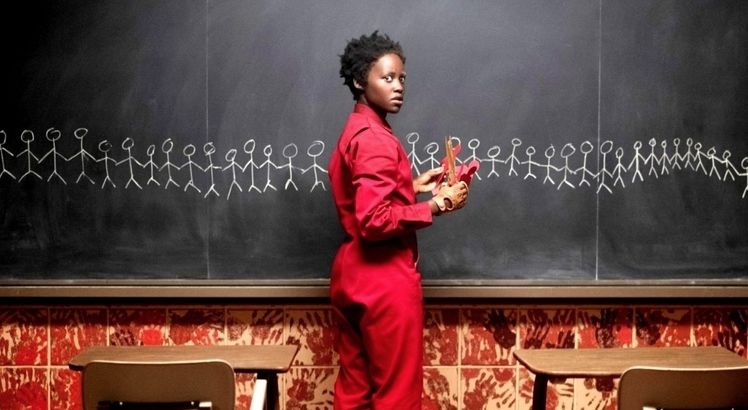Jordan Peele’s “Us” Fails To Deliver Sustained Brilliance
April 2, 2019
Jordan Peele is the supposed savior of the thriller genre. The actor/writer/director first achieved household name status through his Comedy Central program, “Key & Peele.” He then shocked the United States in 2017 with his brilliant directorial debut “Get Out,” a taut, psychological thriller that was captivating and extremely intelligent.
Now, Peele’s reputation is at an all-time high and expectations surrounding his work are soaring. Anything Hollywood’s newest star does will, of course, be scrutinized and compared to his first work no matter what.
Thus, Peele’s latest release, another psychological thriller, Us, will never be given a fair chance to create its own identity. It will forever be compared to one of the decade’s best films, and that means Peele’s new film isn’t likely to receive the universal shower of praise that “Get Out” did in 2017, for it will never be “Get Out.”
However, unfortunately enough, “Us” will never be seen comparably to Peele’s first film, simply because it is a weaker overall film. While it has a great concept with thought-provoking ideas that are realized in the work’s final act, the film ultimately struggles through a great deal of wasted screen time to make it to this point.
“Us” is Peele’s commentary on American society and humanity in general. Taking the average American family, led by Lupita Nyong’o and Winston Duke, Peele pits them against their own vicious doppelgangers, as their counterparts set out on a murderous quest to kill the “real” Wilson family.
Simply by concept alone, it’s evident that Peele has a lot to say about the evils in modern humanity, the division in the world and the truths we try to obscure about ourselves. “Us” follows Peele’s now-signature style of including subtle metaphors and references to help develop the film’s significance, and these clever symbols keep the viewer guessing and thinking at every turn in the plot.
Unfortunately, beyond this signature commentary, “Us” is a very traditional horror/thriller film in an unexpected way that ultimately proves to be mundane and slow. While the psychological and theoretical elements of the film unravel and develop slowly over the course of the movie, the action on the screen simply doesn’t hold up to what’s happening in the minds of the viewer.
The film’s ideas are excellent, provocative and truly stimulating, but it is the action, the horror-based terror happening on the screen, that fails to keep the energy and intensity of the concepts and theories that Peele instills into his tale. Beyond his fiendish commentary, Peele doesn’t truly accomplish anything different and unique with “Us,” and considering how Peele only realizes the development of his ideas in the waning 15 minutes of the film, it’s an awfully long wait to find any fulfillment.
Peele truly has something great to say in his film, and he ultimately accomplishes his goal, conveying his mind-blowing, nightmarish thoughts to his audience in the end. Nevertheless, Peele takes so long to get to this point, taking needless time to reach this point and shelving efficiency in favor of empty spectacle, rendering “Us” to its fate of a film that takes too long to reward its viewers.
“Us” is not without its merits as a film, and Peele continues to show that he is one of the top writers and, above all, intellectual and poignant thinkers in Hollywood today. His film isn’t wholly consistent and razor-thin, but it does accomplish a lot and deliver the commentary that Peele aims to convey.
However, what is lost in the process is the tautness, the leanness of Peele’s storytelling that he conveyed with “Get Out.” Much of “Us” feels like empty spectacle: images moving on the screen but without the soul and emotion behind them. Peele accomplishes his goal in the end, wading through nearly two hours of film to reach this point is unnecessary. It shows that while the writer had command over the commentary he wanted to make, he failed to truly handle how he exactly wanted to convey these ideas.











